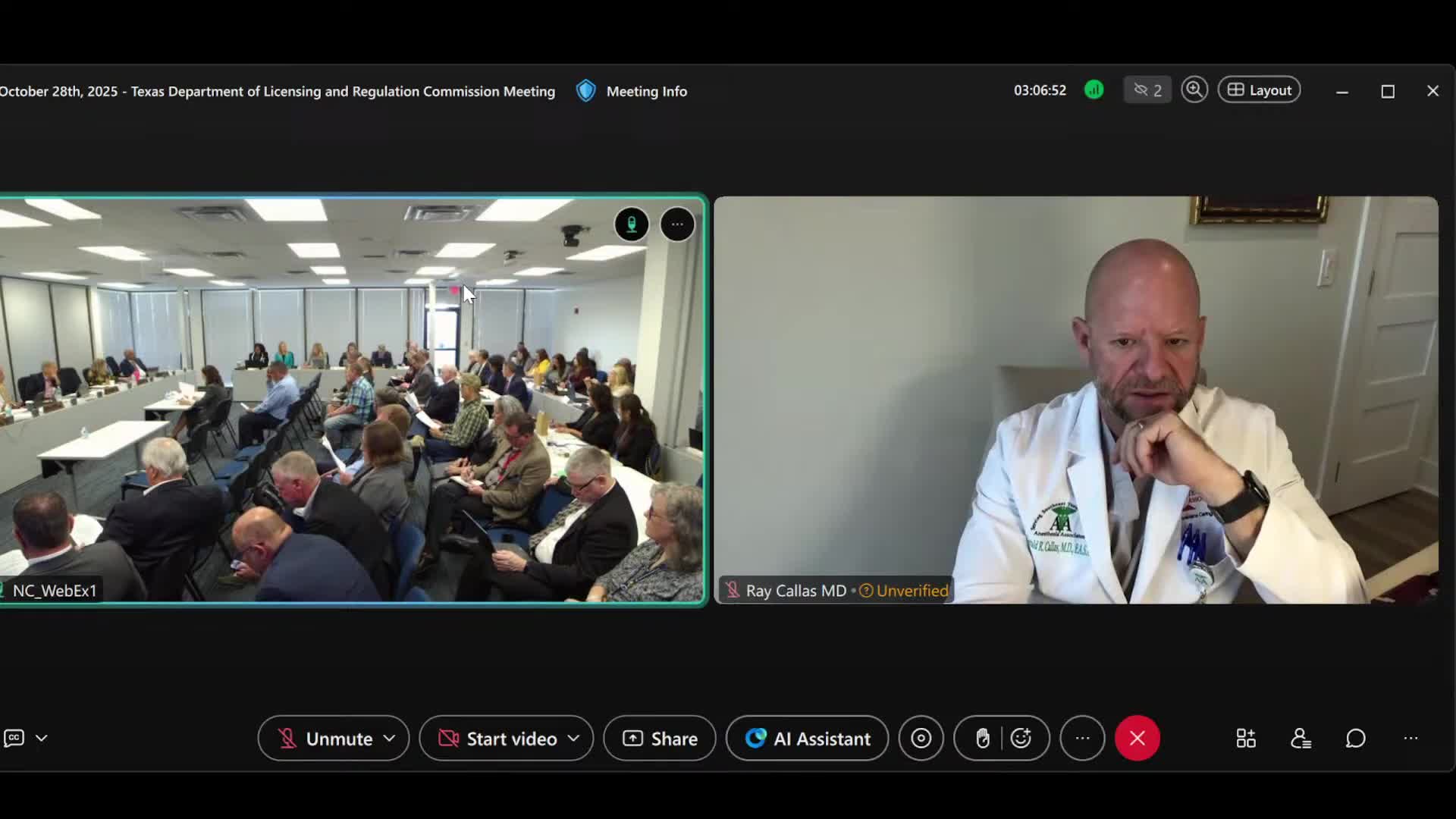TDLR accepts probated revocation in massage case and signals stepped-up anti-trafficking scrutiny
Get AI-powered insights, summaries, and transcripts
Subscribe
Summary
Commission accepted a probated revocation and ordered education and payment; staff outlined expanded enforcement against illicit massage businesses and raised concerns about exam access in simplified Chinese.
The Texas Department of Licensing and Regulation commission accepted an agreed enforcement order in a massage-therapy matter that calls for license revocation suspended (probated) for one year, a $5,000 administrative penalty, and continuing education focused on professional boundaries and communications.
Nicole Burns, a prosecutor in TDLR's anti-human-trafficking/enforcement team, reported the settlement and said the respondent agreed to pay the fine and complete 50 hours of continuing education (including at least 12 hours on maintaining healthy boundaries and three hours on client communications). The commission voted to accept the agreed order and dismissed the PFD.
Separately, staff described an expanded anti-human-trafficking effort in the massage industry. Commissioners heard that the newly formed anti-trafficking team (formed earlier in the fiscal year) has issued multiple emergency orders against suspected illicit operations, identified applicants and locations with trafficking indicators, and flagged diploma-mill activity connected to multiple properties and enrolled students. Staff reported coordination with nongovernmental organizations and law enforcement to assist potential victims.
TDLR staff also told commissioners that data review of the massage licensing exam in simplified Chinese raised operational and fraud-risk concerns. Staff said the division is working with vendors and stakeholders to explore pausing the simplified-Chinese exam offering or otherwise altering exam delivery, balancing language access against the risk of enabling bad actors that exploit language accommodations.
Commissioners and staff described the measures as part of a broader enforcement strategy: expedited reviews of flagged applications, emergency orders against operating locations when victim-safety concerns arise, and targeted audits and investigations where trafficking indicators appear.
